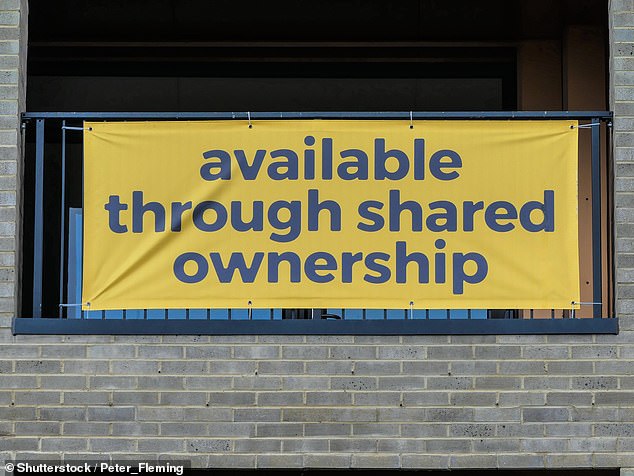My daughter is currently living in London and is hoping to get on the property ladder somewhere in and around the capital. When looking, shared ownership seems like a possibility.
We live in Scotland and would like to help towards the deposit but don’t know anything about shared ownership.
We are also not familiar with the English system for buying property. Although we have tried to look at it online we are still a bit uncertain about the logistics of it all and the pros and cons. K.B.
SCROLL DOWN TO FIND OUT HOW TO ASK DAVID YOUR MORTGAGE QUESTION

Mortgage help: Our weekly Navigate the Mortgage Maze column sees broker David Hollingworth answering your questions
David Hollingworth replies: Shared ownership is a well-established option aimed at buyers looking for a more affordable solution to take what will often be the first step on the property ladder.
Your daughter will no doubt be facing high house prices in London and so is sensibly considering alternative options to help put ownership within reach sooner than it otherwise would.
It shouldn’t be confused with shared equity schemes that work quite differently. Shared equity was most notably the mechanism behind the Help to Buy scheme that has now been closed in England.
Shared ownership on the other hand is a scheme that does what it says on the tin. It enables a proportion of a property to be purchased from a housing association, which will retain ownership of the remainder of the property.
> How to remortgage your home: A guide to finding the best deal
Growing the share
That initial share could be as little as 10 per cent in some cases, although there will be an assessment on how big of a chunk could be bought at outset.
That will be funded through any deposit that the buyer can put down and the rest through a mortgage. Rent is then paid to the housing association on the remaining share and will be charged at a rate below the open market rent.
This can clearly help a struggling first time buyer to at least get a foothold on the property ladder and will allow for further shares to be purchased as their situation alters. This could ultimately lead to as much as 100 per cent ownership and is known as staircasing.
Shared ownership has a number of benefits for the buyer in giving them some exposure to property prices.
> What next for mortgage rates and should you fix?

David Hollingworth says that shared ownership can help a struggling first time buyer to at least get a foothold on the property ladder
First time buyers will have felt that prices have often run away from them, making saving for a deposit all the harder when prices are rising faster than they can save.
Prices may have eased a little for now due to a slower market but remain well out of reach for many and if they do begin to rise again your daughter would have some stake in the market.
Another big benefit is the security that shared ownership can provide. Renting can be expensive, but tenants may have to move if the landlord hikes the rent or decides to sell.
Shared ownership gives greater security of tenure than renting, which will no doubt appeal if your daughter can find the right property.
Eligibility Requirements
There are eligibility requirements for shared ownership and the ability to buy will need those requirements to be met as well as for a suitable property to be available.
The general requirement will be that income is below £90,000 in London (£80k elsewhere) and that there isn’t an ability to purchase on the open market.
Advice, advice, advice
Property may be new build or a resale of a home previously owned on a shared ownership basis.
If your daughter has seen some property that she may be interested in, it makes sense to contact the housing association which will be able to talk through the process.
The main differences in buying in England compared to Scotland will be the legal process with the purchase becoming binding at the point that contracts are exchanged in England.
That will take longer than in Scotland where a sale will be binding once missives are concluded.
A solicitor or conveyancer will be required by your daughter and will be able to talk you through the process and the timings that will need to be met to tie everything together.
> This is Money’s mortgage affordability calculator

Eligibility Requirements: The general requirement will be that income is below £90,000 in London (£80k elsewhere) and that there isn’t an ability to purchase on the open market
In addition to talking to the housing association to meet their requirements, your daughter will also need advice on the mortgage.
Although some lenders will not lend on shared ownership there is a good number of lenders that will, ranging from big high street lenders through to smaller building societies.
Most will require a deposit to be put down on the share being purchased, although it can be possible to secure as much as 95 per cent or even 100 per cent of the purchase share.
There’s a lot more information about shared ownership online. A basic overview is available here and more specific info to London including a property search tool can be found here.
These will be starting points but getting advice with your daughter from housing asociations, solicitor and regarding the mortgage should help you understand more.
NAVIGATE THE MORTGAGE MAZE



